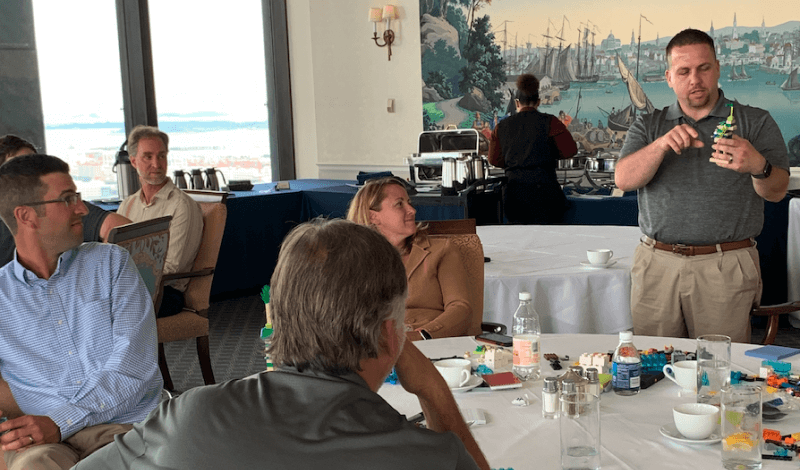- January 19, 2021
- Posted by: Tom Richert
- Category: Leadership

Retired submarine captain David Marquet, in speeches and in his book Turn the Ship Around! told how he accidentally commanded his crew to make the submarine go faster than it could. When asked why, he was told, “Because you told me to.” Marquet had been trained on a different submarine, and the crew had been trained to obey commands without question, resulting in a crisis.
Similarly, I recall how a construction worker didn’t report a hole in a water pipe he was busily burying. Only when it became apparent that the pipe leaked did the worker report the leak’s source. As a result, the situation escalated from an inconvenience to a crisis.
These examples show that what’s needed is shared leadership, the idea that everybody in a workplace culture shares the responsibility for submitting ideas and actions that advance the team. Shared leadership was what Captain Marquet instituted on his ship. Shared leadership would have provoked the construction worker to halt his own progress and ensure the defective pipe was replaced first.
To create shared leadership, courage is required; it is often not applied. Courage is our connection to others, especially to people with differing backgrounds, disciplines, and organizational ranks. It takes courage for a new team member to challenge a senior member’s assessment. It also takes courage for senior members to admit they do not know how to address a challenge and need support. The greatest act of courage is being present with others, in all our brokenness and greatness.
When teams have the courage to share leadership responsibilities and support each other rather than focus on individual accountability, they cultivate a cohesive, high-performing culture. To instill this, Joanna McGuffey of Unconventional Works developed the Courageous Leadership Experience, a workshop I have co-facilitated several times. From our work these past few years, I can define this cultivation as a four-part cycle, and people hunger for all four parts.
The first part is self-understanding, to appreciate your core personal identity. Beginning in childhood, we shed identity parts to avoid threats real and imagined. This dismissing is even more pronounced for people experiencing more substantial threats and real trauma. These traits are something other than the professional skills people bring to work: They are human qualities that nurture social-support systems and can be described as compassion, humor, group protection, or pattern recognition. The search for self-understanding requires periodically recalling times you successfully responded to others’ needs. How you responded suggests important aspects of your core personal identity.
The second part is connection. It requires that we spend time talking to our coworkers. We need to share deep aspects of our humanity in these conversations, not the shallow ones we typically have at work. These relationship-oriented conversations develop trust and an environment of mutual care. We find that doing the self-understanding/personal identity reflection with the team is an excellent way to build and support team connection.
The third part is defining a purpose that appeals emotionally to team members. When they ponder this purpose, they feel the need to fulfill it. This differs from the more objective purposes that team members may have, such as meeting a budget target, writing software code, or designing a production system. It usually describes the beneficial impact the team’s work will have on some segment of the population.
The fourth step is creating a shared core identity. Groups develop a shared identity that defines who they are as a unit. When the team deliberately designs this shared identity by assembling key aspects of individual members’ core identities, this shared core identity powerfully embodies group potential.
These four parts constitute a steady cycle. Having gone through the cycle once, a team must develop a new commitment to move forward. Courageous Leadership is a practice, and all parts of developing courageous leadership require attention to sustain high performing work cultures.
Leave a Reply
You must be logged in to post a comment.

